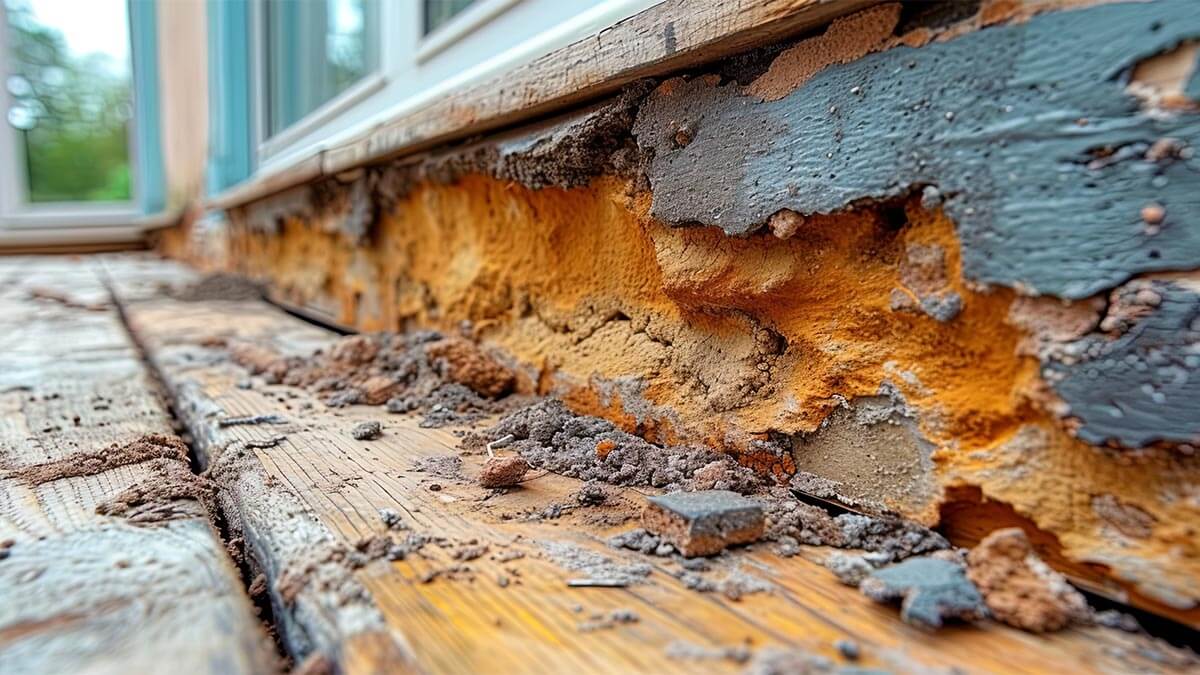Disclosing termite damage is a crucial aspect of selling a house, ensuring transparency and compliance with legal requirements.
Proper disclosure can prevent legal issues and build trust with potential buyers. If you’re looking for a quick and hassle-free sale, iBuyer services can help, even if your property has termite issues.
Disclose Termites When Selling
Compare Cash Offers from Top Home Buyers. Delivered by Your Local iBuyer Certified Specialist.
One Expert, Multiple Offers, No Obligation.
Legal Requirements for Disclosing Termites
Federal and State Laws
Federal laws do not mandate termite disclosures, but state laws often require sellers to disclose known termite infestations or damage as part of the property disclosure form. The requirements can vary significantly from state to state:
- California: Sellers must disclose any known issues, including termite damage, in the Transfer Disclosure Statement (TDS).
- Florida: Requires disclosure of any known facts that materially affect the property’s value, which includes termite damage.
- Texas: The Seller’s Disclosure Notice requires sellers to disclose past termite damage and treatments.
It’s essential to check your specific state’s requirements to ensure compliance and avoid legal issues.
Latent Defects
Latent defects are problems not visible during a standard inspection but can significantly impact the property’s value and safety. Termites are considered latent defects because their damage might not be immediately noticeable.
Sellers must disclose any known latent defects to buyers to prevent future disputes and legal consequences.
Consequences of Failing to Disclose Termite Damage
Legal Liability
Failing to disclose termite damage can lead to serious legal repercussions for sellers. If buyers discover undisclosed termite issues after the sale, they can sue for misrepresentation or fraud. Legal actions can result in:
- Lawsuits: Buyers may file lawsuits seeking compensation for the cost of repairs or the diminished value of the property.
- Settlements: Sellers might be forced to settle out of court, which can still involve significant financial penalties.
- Void Contracts: In some cases, buyers may be able to void the contract and return the property to the seller, who would then have to refund the purchase price.
Financial Implications
The financial consequences of not disclosing termite damage can be substantial:
- Repair Costs: Sellers may be held responsible for all repair costs associated with the termite damage. These costs can be extensive, especially if the infestation is severe.
- Legal Fees: Legal battles can lead to high attorney fees, court costs, and other related expenses.
- Reduced Property Value: Undisclosed termite damage can significantly decrease the property’s value, making it harder to sell in the future.
How to Handle Termite Damage Before Selling
Conducting a Termite Inspection
Getting a professional termite inspection is essential to understand the extent of the damage:
- Importance: A termite inspection helps identify the presence and severity of an infestation, which is crucial for making informed decisions about repairs and disclosures.
- Costs: Termite inspections typically cost between $100 and $150, depending on the size of the home and the region. This cost is a worthwhile investment to prevent potential legal and financial issues down the road.
Repairing Termite Damage
Addressing termite damage before selling can make your property more appealing to buyers:
- Soil Treatments: Applying chemical treatments to the soil around the foundation can help eliminate existing colonies and prevent future infestations.
- Wood Treatments: Treating affected wood with termiticides or replacing damaged wood can restore structural integrity and prevent further damage.
- Bait Systems: Installing bait stations around the property can help control termite populations and monitor for new infestations.
Costs: Repair costs can vary widely based on the extent of the damage and the chosen treatment method. Minor repairs might cost a few hundred dollars, while extensive treatments and structural repairs can run into thousands of dollars.
Strategies for Selling a House with Termite Damage
Full Disclosure
Being transparent about termite issues with potential buyers can build trust and facilitate the sale process:
- Benefits: Full disclosure of termite damage can prevent future legal disputes and provide peace of mind to buyers.
- Documentation: Provide documentation of all treatments, repairs, and warranties related to termite damage. This can reassure buyers that the issue has been addressed professionally and reduce their concerns.
Selling As-Is
Consider selling the house as-is, particularly if the termite damage is extensive and you are unable or unwilling to make repairs:
- Cash Buyers and Investors: Selling as-is can attract cash buyers or real estate investors who are willing to take on the necessary repairs.
- Price Adjustment: Be prepared to adjust the sale price to reflect the cost of termite repairs. This can make the property more attractive to buyers who are looking for a deal and are willing to invest in repairs.
Offering Buyer Incentives
To make your property more appealing despite termite issues, consider offering incentives to potential buyers:
- Covering Treatment Costs: Offer to cover the cost of termite treatment for the first year. This can alleviate buyer concerns about ongoing expenses.
- Price Reduction: Reduce the sale price to account for the cost of termite repairs, making the property more competitive in the market.
- Home Warranty: Provide a home warranty that includes termite protection. This can give buyers additional peace of mind and increase their confidence in purchasing the property.
Conclusion
Disclosing termite damage when selling a house is not only a legal requirement in many states but also a crucial step in ensuring a smooth and transparent transaction. Here’s a recap of the key points:
- Importance of Disclosure: Properly disclosing termite damage builds trust with buyers and helps avoid legal and financial repercussions.
- Legal Requirements: Understanding federal and state laws regarding termite disclosure is essential for compliance.
- Handling Termite Damage: Conduct a professional termite inspection, address any damage, and consider repair costs to prepare your home for sale.
- Selling Strategies: Full disclosure, selling as-is, and offering buyer incentives can make your property more attractive despite termite issues.
For homeowners seeking a quick and efficient sale, iBuyer services offer a streamlined process that handles termite damage concerns effectively. Contact iBuyer for a consultation to explore your selling options and ensure a hassle-free experience.
Instant Valuation, Confidential Deals with a Certified iBuyer.com Specialist.
Sell Smart, Sell Fast, Get Sold. No Obligations.
FAQ Section
Yes, in most states, sellers are required to disclose any known termite damage as part of the property disclosure process. Failure to do so can lead to legal consequences.
If a seller fails to disclose termite damage, they can face legal action for misrepresentation or fraud. The seller may be liable for repair costs, legal fees, and potentially the return of the purchase price if the sale is voided.
Yes, you can sell your house as-is with termite damage. However, you may need to adjust the sale price to attract buyers who are willing to handle the repairs. Cash buyers and investors are often interested in as-is properties.
Termite inspections typically cost between $100 and $150, depending on the size of the home and the extent of the inspection. This cost is a worthwhile investment to ensure transparency and prevent future disputes.
Yes, conducting a pre-inspection can help the seller identify and address termite issues before listing the property. This proactive approach can make the property more appealing to buyers and prevent delays during the sale process.
Yes, the costs of the termite inspection can be negotiated between the buyer and seller. Including these terms in the sales agreement can prevent misunderstandings and ensure a smoother transaction.
Full disclosure of termite damage can prevent future legal disputes, increase buyer confidence, and make the property more attractive by providing proof of a well-maintained septic system.
Consider offering to cover the first year of termite treatment, reducing the sale price to account for repair costs, or providing a home warranty that includes termite protection. These incentives can make your property more appealing to potential buyers.
Reilly Dzurick is a seasoned real estate agent at Get Land Florida, bringing over six years of industry experience to the vibrant Vero Beach market. She is known for her deep understanding of local real estate trends and her dedication to helping clients find their dream properties. Reilly’s journey in real estate is complemented by her academic background in Public Relations, Advertising, and Applied Communication from the University of North Florida.




